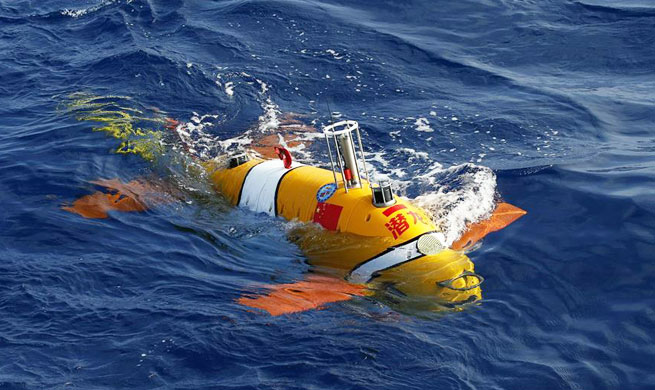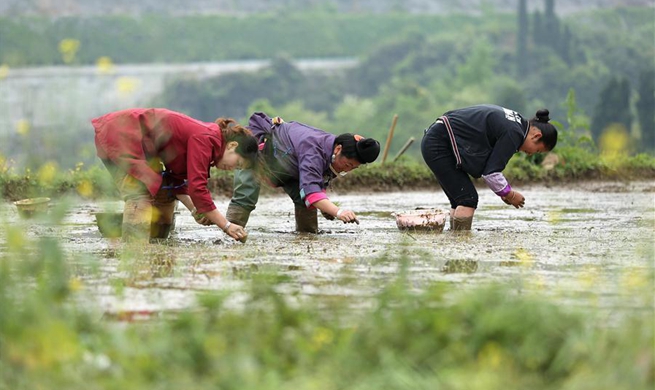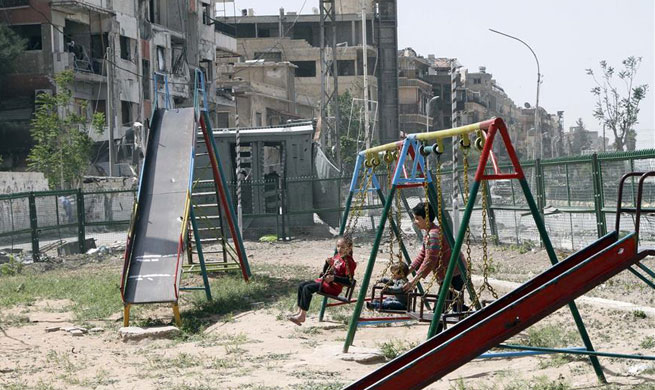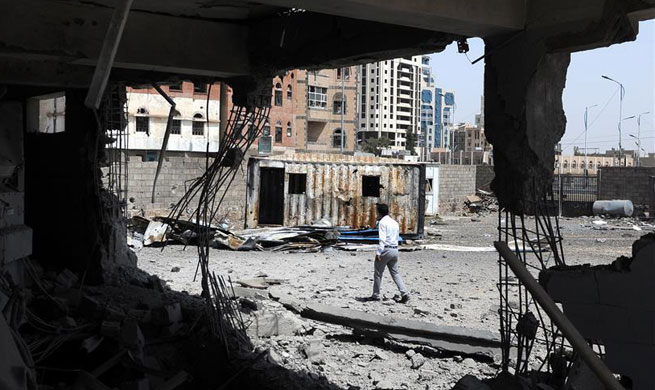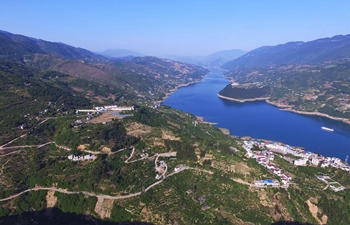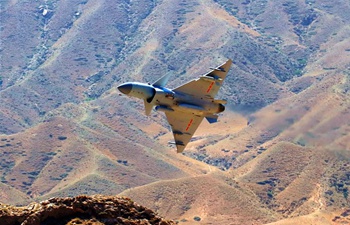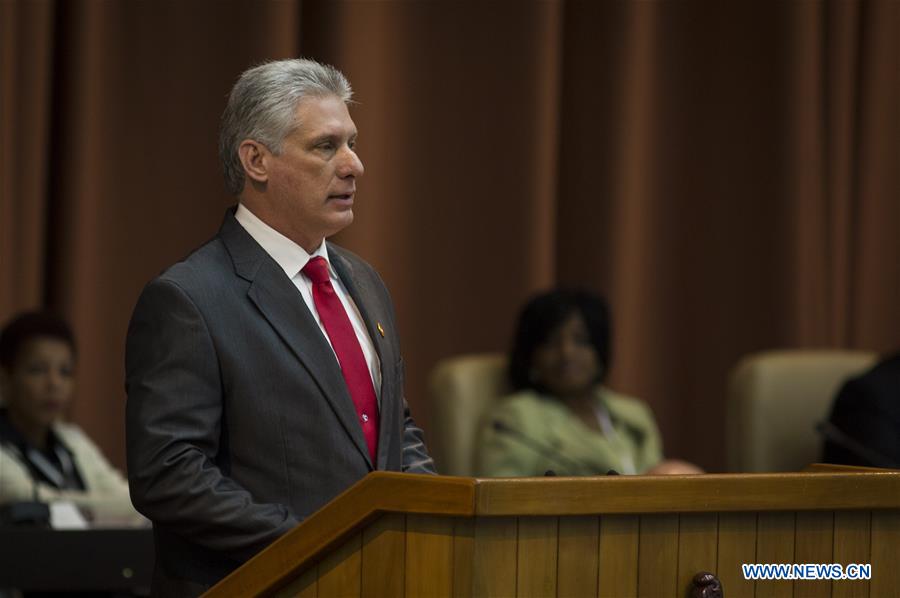
Miguel Diaz-Canel, the newly elected President of the Council of State of Cuba, delivers a speech after the announcement of his election during a session of the National Assembly of People's Power in Havana, capital of Cuba, April 19, 2018. Miguel Diaz-Canel was elected on Thursday as Cuba's new president, as the successor of Raul Castro, who concluded two consecutive five-year terms in office. (Xinhua/Irene Perez/CUBADEBATE)
HAVANA, April 20 (Xinhua) -- Cuba's newly-elected President Miguel Diaz-Canel must tackle pressing economic challenges, including raising wages, ending the dual currency system and spurring economic growth, according to Cuban economist Juan Triana.
An economics professor at the University of Havana, Triana said Diaz-Canel should govern with the same "creativity" and "pragmatism" demonstrated by Raul Castro during his two terms in office.
Castro led a modernization drive that encouraged limited private enterprise, and did away with many onerous economic and financial restrictions.
"If today we are facing these challenges, it's because Raul Castro decided to initiate a change, to transform the economy to have a prosperous and sustainable nation. He was not afraid of risk and that is why progress has been made," Triana said.
"We will have to learn, undo laws and approve new ones in order to advance in this reform process, but it's something that must continue," he added.
The single biggest challenge today is to make the economy grow at adequate rates, a task that is "far" from being achieved, he said.
According to official data released by the national statistics bureau ONEI, since 2009 gross domestic product (GDP) has only grown at higher than 3 percent once, in 2015.
In 2016 and 2017, growth registered 0.9 percent and 1.6 percent, respectively.
The outlook for 2018 is for modest 2 percent growth, a figure that according to the Cuban expert will not change the declining trend observed in the last decade.
"However, we have a good legal, economic and political framework to move forward ... we have documents that outline the path, its strategic axes and a long-term development plan, and we know what the fundamental aspirations of the people are," he told Xinhua.
There is an urgent need to make state companies more efficient to turn them into the "backbone" of the economy in the next five years, and to cut red tape to draw more foreign investment.
"The Cuban economy must have greater flows of foreign direct investment and we must end the resistance and bureaucracy that exists to facilitate it," he said.
Official figures indicate that in 2017 Cuba managed to attract more than 2 billion U.S. dollars in foreign capital, presenting a business portfolio of 10.7 billion dollars.
The portfolio is backed by a foreign investment law approved in 2014 that offers tax breaks, repatriation of capital and other incentives.
"In social matters the challenge will be to handle inequalities that already exist and those that will arise. We have to achieve adequate criteria about what equality means in Cuba today," said Triana.
According to his assessment, the new government must create clear rules or laws that allow citizens to take advantage of their full potential.
"It is important for competent professionals in this country to be able to use their qualifications to the fullest and contribute to the development of the nation, either at a state or private company," said the economist.










